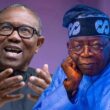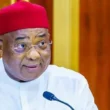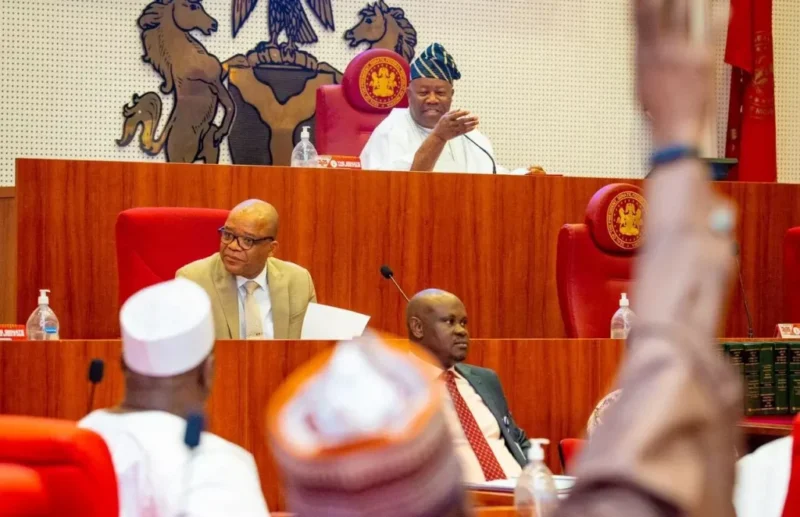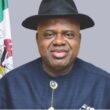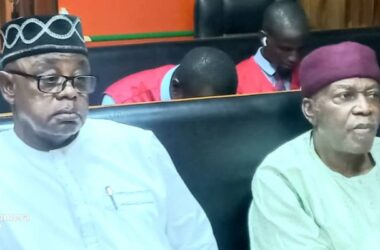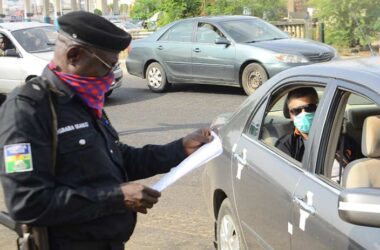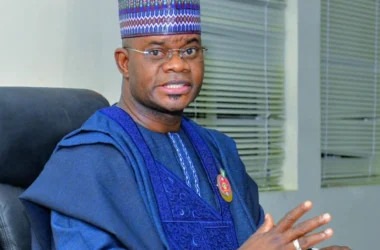Former Senator Ishaku Abbo, a radical member of the All Progressives Congress (APC) who opposed the Muslim/Muslim ticket of President Bola Tinubu and Vice President Kashim Shettima during the campaign last year, has claimed that current Senators earn N29 million monthly.
This statement significantly contradicts previous figures provided by both the Revenue Mobilisation, Allocation, and Fiscal Commission (RMAFC) and Senate officials.
Abbo, who previously represented Adamawa North, disclosed these details on Arise TV on August 18. He asserted that during his tenure, the total monthly allowances amounted to N14.4 million, which included a N1 million salary.
He added, “When I was in the Senate, cumulatively, all the allowances were N14.4 million per month. You have a wardrobe allowance, a vehicle allowance, and other allowances put together that were N14.4 million, including the N1 million salary. It is about N29 million now.”
This claim by Abbo is notably higher than the N21 million recently stated by Senator Kawu Sumaila of the New Nigeria Peoples Party (NNPP) from Kano South.
Sumaila had revealed this figure in an interview with BBC Hausa on August 16, saying, “My monthly salary is less than N1 million. After deductions, the figure comes down to a little over N600,000 …. Given the increase effected, in the Senate, each Senator gets N21 million every month as running cost.”
In contrast, the RMAFC Chairman Muhammed Shehu had declared earlier on August 12 that the total salary and allowances for Senators were much lower, approximately N1,063,860 per month. Shehu’s statement has been consistently challenged by various quarters.
Following Sumaila’s revelation, Senate spokesman Yemi Adaramodu issued a rebuttal. He emphasized that the figures quoted by Sumaila were incorrect and described them as “obsolete allegations of phantom salaries.”
Adaramodu clarified, “The Revenue Mobilisation Fiscal Allocation Commission, the agency of government that fixes political officials’ salaries and allowances, has duly disclosed the monthly personal take-home of Senators. However, all arms of government and their personnel – governors, ministers, Permanent Secretaries, Directors-General, state commissioners, and even boards and parastatals, including local government councils – run their activities with running costs, and the National Assembly is no exception.”
He continued by explaining that the funds mentioned by Sumaila were not personal allowances but rather operational costs necessary for running Senate offices, staff salaries, and other statutory functions.
Amid these disputes, Abbo’s comments provide a personal perspective on the financial realities faced by Senators. He recounted how his own financial situation deteriorated after becoming a legislator, contrasting sharply with the perceived wealth of some Governors.
Abbo claimed, “I had to leave the company I founded, in which I was the Managing Director/Chief Executive Officer, to go into governance when I won the election. I had to start subsiding my life because the money that was allocated to my office was absolutely nothing considering the demand and challenges faced by my own constituents on a daily basis.”
He further criticized the disparity in financial allocations, noting that he had to personally fund numerous humanitarian efforts, while alleging that some state Governors received substantial amounts for security votes, up to N1 billion monthly.
He concluded with a stark reflection on his financial decline, stating, “I am poorer, much poorer as a man when I became a politician than I was before I became a politician.”


